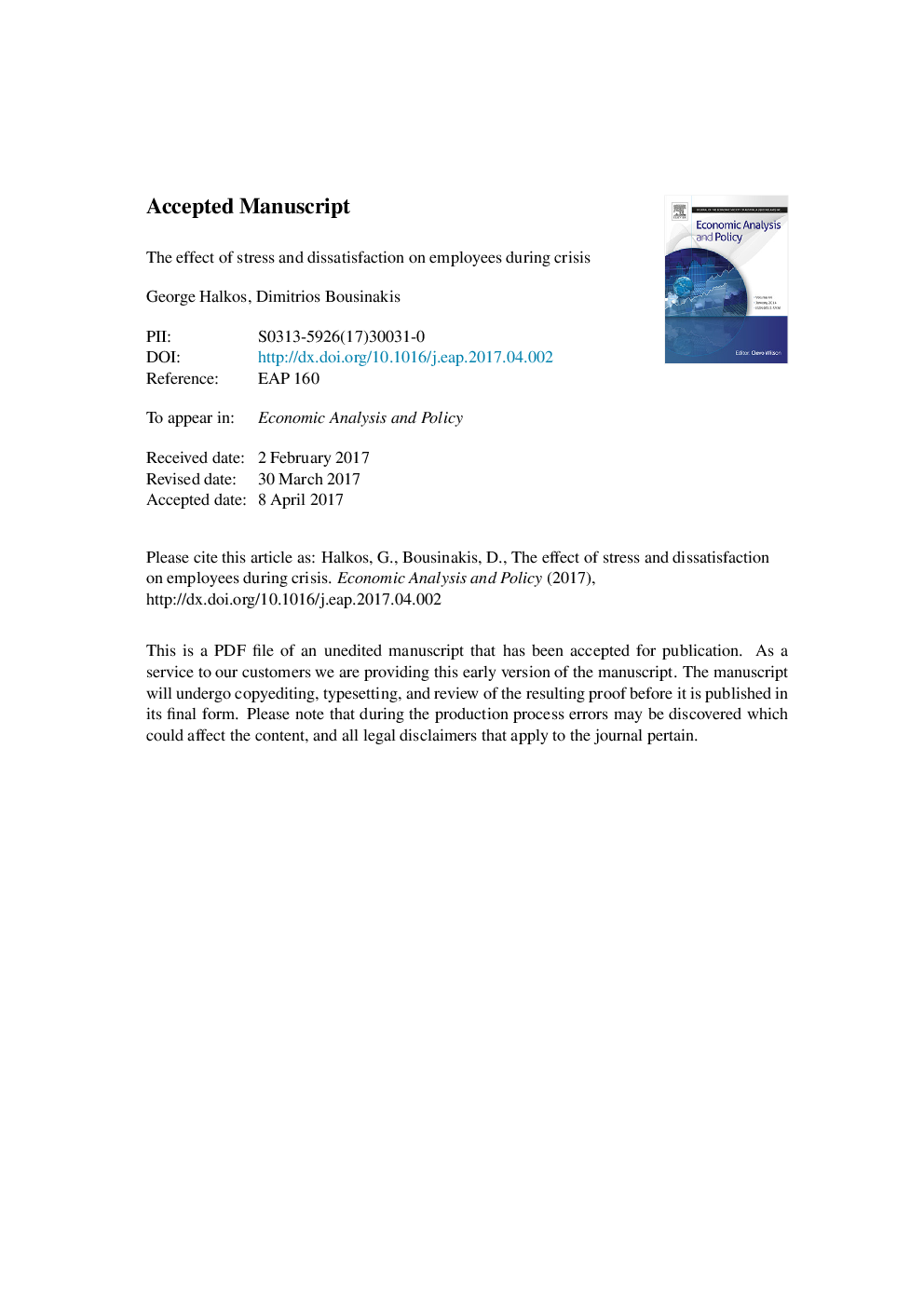ترجمه فارسی عنوان مقاله
تأثیر استرس و نارضایتی کارکنان در طول بحران
عنوان انگلیسی
The effect of stress and dissatisfaction on employees during crisis
| کد مقاله | سال انتشار | تعداد صفحات مقاله انگلیسی |
|---|---|---|
| 83730 | 2017 | 29 صفحه PDF |
منبع

Publisher : Elsevier - Science Direct (الزویر - ساینس دایرکت)
Journal : Economic Analysis and Policy, Volume 55, September 2017, Pages 25-34
ترجمه کلمات کلیدی
بحران، فشار، رضایت، نارضایتی، مهاجرت، نمایندگی مجدد تغییر رفتار، رگرسیون لجستیک،
کلمات کلیدی انگلیسی
Crisis; Stress; Satisfaction; Dissatisfaction; Migration; Reprioritizing; Behavior change; Logistic regression;
ترجمه چکیده
این مطالعه به بررسی تأثیر استرس شغلی و نارضایتی شغلی بر کارکنان در طی بحران می پردازد. داده های اولیه با استفاده از یک نمونه تصادفی از 172 کارمند در بخش های خصوصی و دولتی یونان، با استفاده از نمونه گیری خوشه ای دو مرحله ای، جمع آوری شد. با تکیه بر این نمونه و متغیرهای جمع آوری شده، برای نخستین بار تعدادی از متغیرهای کیفی را به عنوان ویژگی هایی که بحران (به ویژه تنش و نارضایتی، مهاجرت، تغییرات مجدد و تغییرات رفتاری) را نشان می دهند، مدل می کنیم. سپس رگرسیون لجستیک برای ارائه تعدادی از توابع مشارکتی سودمند از استرس، نارضایتی و عناصر حمایتی استفاده می شود. این مبنای محاسبه نسبت شانس و احتمالات مربوط به تاثیر بر کارکنان در طی بحران را فراهم می کند. تعدادی از یافته های جدید در مورد علل استرس ظهور شامل پذیرش کاهش حقوق و دستمزد، تعداد ساعات کاری، مهاجرت اقتصادی، تغییرات رفتاری بین مدیریت و کارکنان، تغییر مجدد و به حداقل رساندن فرصت های شغلی است.

